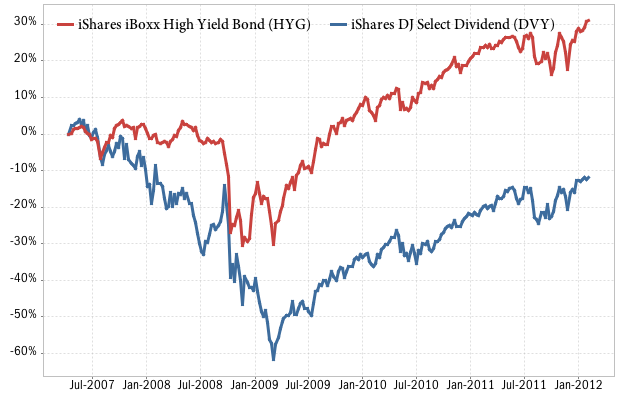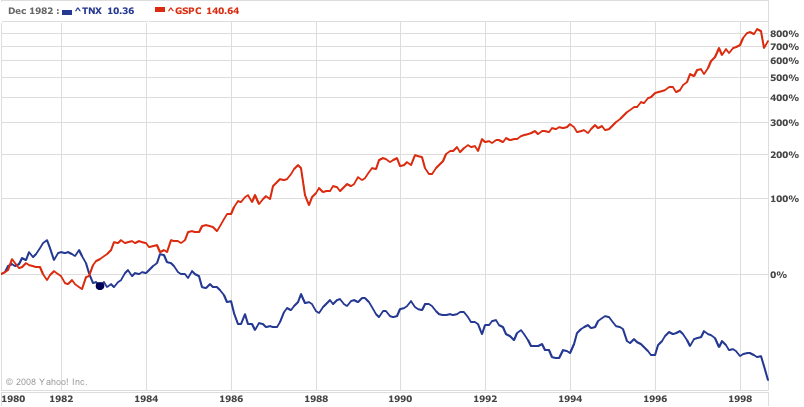Stocks Vs Bonds
Post on: 13 Июль, 2015 No Comment

Which Should You Choose?
Its a common battle. Where to put your money: stocks or bonds?
Securities investment falls under the broader umbrella of bond and stock market investing. Which of these two investments is best for you depends on the level of risk you are comfortable with. Bond investing has less risk of loss than stocks, but also less potential for gain, particularly during periods of inflation. On the flip side of the coin, stock market investing has more potential for high yields, but with no guarantee against loss, since stock prices are more volatile.
Its been suggested that you should allocate your money between stocks and bonds according to your age level. The older you are, the more money you should put into bonds. The younger you are, the more money you should put into stocks. The best companies over the long haul to invest in are those with a history of growth.
The Balanced Approach
One rule of thumb that most financial advisors suggest is to take a balanced approach and keep your investment in bonds limited to your current age. If you are 35, then 35% of your portfolio should be invested in bonds, while 65% is invested in the stock market. As you get older, you will continue to protect your capital. As you reach age 65, your 35% exposure to stocks will help to maintain your lifestyle. The last thing you want to do is outlive your retirement funds.
Shares come in different sizes and categories. There are large, mid and small caps and there are penny stocks. As a beginner, you can invest in large and mid cap companies and only after you gain experience, you can consider investing a small portion in small caps and hot penny stocks. These are the riskiest but if handled adroitly, give the largest returns. However, it needs expertise and nerves of steel.
You should not jump in something Stock market investing; it needs a lot of time to learn the basics of stock market investing. You can start investing once you have gained some experience. It is suggested to invest small amounts of your money over a period of time rather than investing all the money at once.
Keeping It Simple
Some people may find investing in bonds simpler than investing in stocks. Your banking professional or personal broker can provide you with lists of government bonds and highly rated corporate bonds to choose from. To compare the two, bond investing provides a higher return for a longer investment, whereas investing in shares has more flexible options for long and short term investments.

Its up to you to decide which shares to buy and ignore tips. Special care should be taken in the case of hot penny stocks as they are riskiest investments. You should do your complete research of the company and all other factors before considering investing in them.
Ultimately, the battle between stocks and bonds comes down to a couple of important factors: your tolerance to risk, and the amount you need for retirement. There is no such thing as risk, so even a safe investment in bonds leaves you with the potential of not earning enough to beat inflation. On the other hand, exposure to equities can leave you with nothing, or, leave you with more than enough money.
The key here is you. Speak to a financial advisor before making any decisions.
We go over some of the stock market basics to lay the foundation for everything that will follow later..
What Are Stocks?
Well go over the various types of investments that are available for you. Youll discover quickly which one is right for you.














